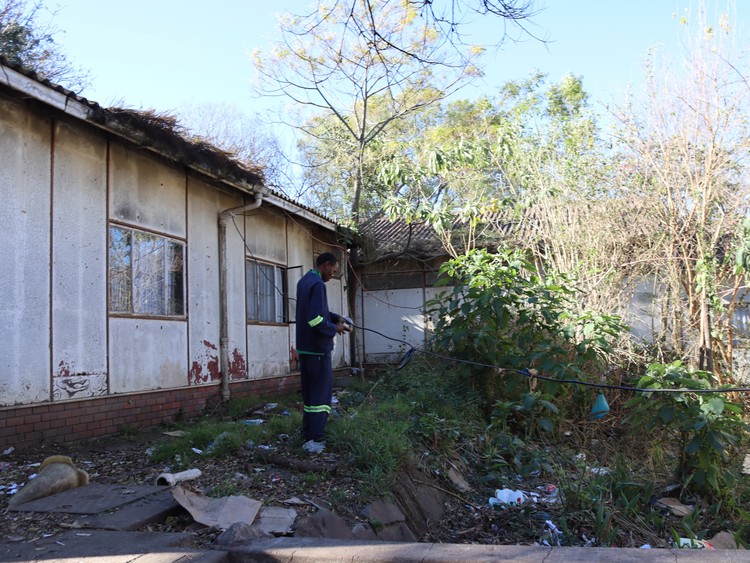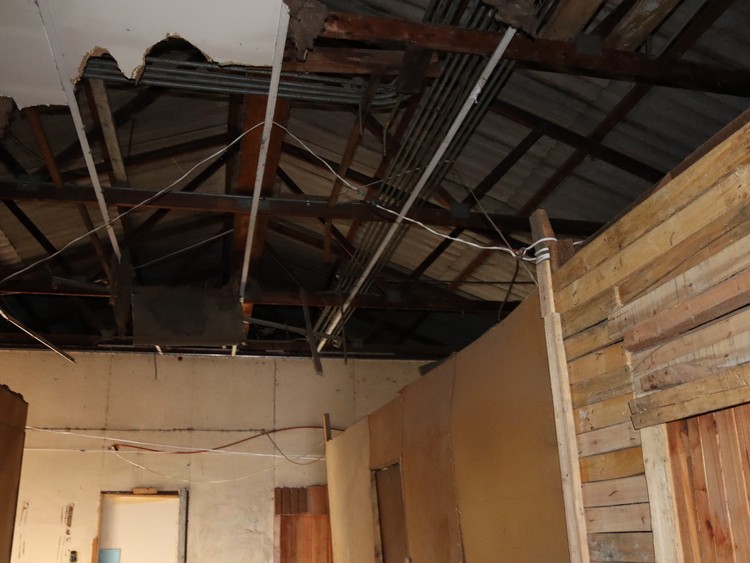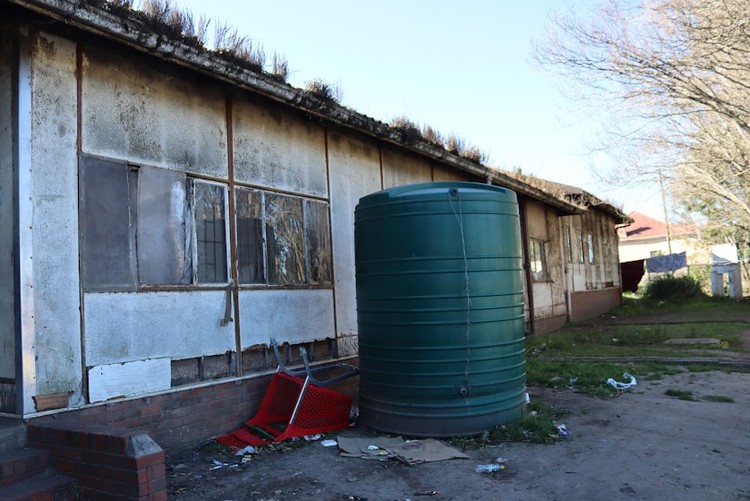Apartheid-era hostel causing a stink in Eastern Cape town
More than 200 families live in the dilapidated Molo hostel in Butterworth without toilets - and the smell is annoying the neighbours
The families living in Molo hostel in Butterworth have no running water or toilets: Photos: Manqulo Nyakombi
- More than 200 families are living in a dilapidated hostel in Butterworth, Eastern Cape, without toilets and electricity.
- The hostel was built in the 1970s to accommodate learners attending a whites-only school. A few years after the 1994 elections, the hostel was closed.
- People from the surrounding townships and villages coming to the town to look for work began occupying the vacant buildings.
- Now the families want the department of public works, which owns the hostel, and the Mnquma Local Municipality to give them proper services.
More than 200 families are living in a dilapidated apartheid-era hostel in Butterworth, Eastern Cape without toilets and electricity.
The hostel was built in the 1970s for learners at a whites-only school in the town. A few years after the 1994 elections, the hostel was closed. People from surrounding townships and villages coming to town to look for work began occupying the vacant buildings.
The hostel is in the heart of Butterworth’s centre and next to many government buildings, including the Department of Social Development offices and the police station.
The building is falling apart. Some residents have used zinc sheets to cover holes in the wall and ceiling. The hall has been divided into rooms with planks and boards. Broken windows have been boarded up.
Residents say water and electricity was cut years ago, so many people rely on illegal connections. Without running water, the toilets got blocked. Residents destroyed them to build more rooms using ceiling boards.
The hostel is currently the responsibility of the Eastern Cape Department of Public Works. Questions sent to spokesperson Siphokazi Ncanywa on Tuesday last week had not been answered by the time of publication in spite of a promise to reply by Monday.
Rooms have been created with boards and illegal electrical wiring hangs from the broken ceilings.
Residents want the department and the Mnquma Local Municipality to provide services.
Hostel resident and ward committee member Wendy Majeke told GroundUp that she was among the first people to move in.
She explained that the place was named Molo hostel after the late Cynthia Molo, a politician and member of the national executive committee of the ANC Women’s League.
“When mama Molo saw a struggling person on the road, she would offer them a place to stay here. Others would come from villages to look for government services and end up finishing very late with nowhere to sleep. Mama Molo would welcome them all and give them rooms,” said Majeke.
She said in the early 2000’s the hostel was still in a decent condition.
Another resident Vero Dorana, who moved to the hostel in 2009, said that before Molo’s death in 2011, she helped them stop an attempt to evict them by the department of Public Works.
“Molo was very powerful and the eviction thing did not happen. After she passed away, our water was cut, electricity was cut, a lot of things started to go wrong. When mama Molo was alive we were registered for houses, after she passed on, the municipality kept quiet about the housing,” she said.
When GroundUp the hostel last week, we were shown one of the small “rooms” shared by about eight people. The room was divided with a curtain, separating a space used as a kitchen, with a lot of beer crates packed in a corner, from the living space.
Majeke said the water tank outside has been dry for years.
“There are no services and our municipality knows that there are people living here. During elections they come here and make empty promises. It is so sad as a ward committee to talk like this, but this is the truth: our municipality is not helping us,” she said.
“A man running an office opposite us complained about the stink coming from the drains, and I told him we don’t have a choice but to throw human waste in the drain outside,” said Majeke.
Mnquma Local Municipality spokesperson Loyiso Mpalantshane said the City is concerned about the dilapidated state of the Molo hostel. He said that officials at the departments of public works and education are addressing the situation.
Provincial Education spokesperson Malibongwe Mtima last week told GroundUp that both departments would meet about the matter and he would respond to our questions after the meeting. But he ignored subsequent calls and messages on WhatsApp.
The water tank has been dry for years, residents say, and there is no running water.
Support independent journalism
Donate using Payfast

Don't miss out on the latest news
We respect your privacy, and promise we won't spam you.
Next: Churches join call for basic income grant
Previous: The right to protest is being blocked by administrative barriers
© 2024 GroundUp. This article is licensed under a Creative Commons Attribution-NoDerivatives 4.0 International License.
You may republish this article, so long as you credit the authors and GroundUp, and do not change the text. Please include a link back to the original article.
We put an invisible pixel in the article so that we can count traffic to republishers. All analytics tools are solely on our servers. We do not give our logs to any third party. Logs are deleted after two weeks. We do not use any IP address identifying information except to count regional traffic. We are solely interested in counting hits, not tracking users. If you republish, please do not delete the invisible pixel.



